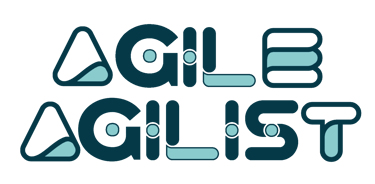Frequently Asked Questions (FAQ) – Agile Agilist
What is Agile Agilist?
Agile Agilist is a global consultancy and training organization specializing in Agile transformation, SAFe® certification, executive coaching, and digital strategy. We partner with enterprises, governments, and professionals to accelerate innovation and business agility.
What types of training do you offer?
We offer a range of certifications and custom workshops, including:
SAFe® Certifications (SPC, RTE, LPM, POPM, etc.)
ICAgile Courses
Agile Leadership and Executive Coaching
Advanced SAFe Practice Consultant (ASPC) Training
Innovation Framework & Transformation Workshops
What makes Agile Agilist different from other consultancies?
We focus on people and process, not just technology. Our approach blends proven Agile frameworks with innovation theory, neuroscience, and real-world transformation expertise. As a SAFe® Gold SPCT Partner, we deliver world-class instruction with measurable impact.
Do you offer private or on-site corporate training?
Yes. We deliver private, in-house, and virtual training sessions tailored to your organization’s needs, including multi-team workshops, executive briefings, and enterprise coaching programs.
What is the difference between RTE and SPC certification?
SPC (SAFe Program Consultant): Focuses on leading SAFe transformations, training others in SAFe, and launching Agile Release Trains. Ideal for change agents and enterprise coaches.
RTE (Release Train Engineer): A specialized servant leader role focused on facilitating ART events, removing impediments, and optimizing flow. Ideal for operational leaders working with teams day-to-day.
What is the difference between Scrum Master certification and SAFe® Scrum Master (SSM)?
Traditional Scrum Master certifications (like CSM or PSM) focus on team-level Scrum.
SAFe® Scrum Master (SSM) expands this by teaching how to apply Scrum in a scaled enterprise using SAFe, how to plan across multiple teams, and how to contribute to PI Planning.
What is the difference between Scrum Master certification and RTE?
Scrum Master: Focuses on guiding a single Agile team.
RTE: Operates at the program level, coordinating multiple Agile teams within an Agile Release Train (ART), facilitating PI Planning, and driving delivery across the value stream.
What are the benefits of becoming a SAFe® PracticeConsultant (SPC)?
SPC certification enables you to:
Teach official SAFe courses (like Leading SAFe, SAFe for Teams, etc.)
Lead SAFe transformations in your organization or for clients
Gain recognition as a change agent and enterprise coach
Access exclusive SPC communities and resources
What is the benefit of the Advanced SAFe Practice Consultant (ASPC) certification?
The ASPC certification elevates experienced SPCs to a master-consultant level. Benefits include:
Deepened transformation skills
Mastery in facilitation, coaching, and enterprise consulting
Access to new training content and advanced teaching techniques
Competitive edge in consulting and executive coaching markets
Teach Advanced SAFe courses in addition to what SPC can teach (like LPM, Advanced Scrum Master , etc.)
Lead SAFe transformations in your organization or for clients
Gain recognition as a change agent and enterprise coach
Access exclusive SPC communities and resources
Do your programs qualify for professional development credits (PDUs/SEUs)?
Yes. Our courses typically qualify for PMI PDUs, Scrum Alliance SEUs, and other continuing education credits. Details are included with each course listing.
